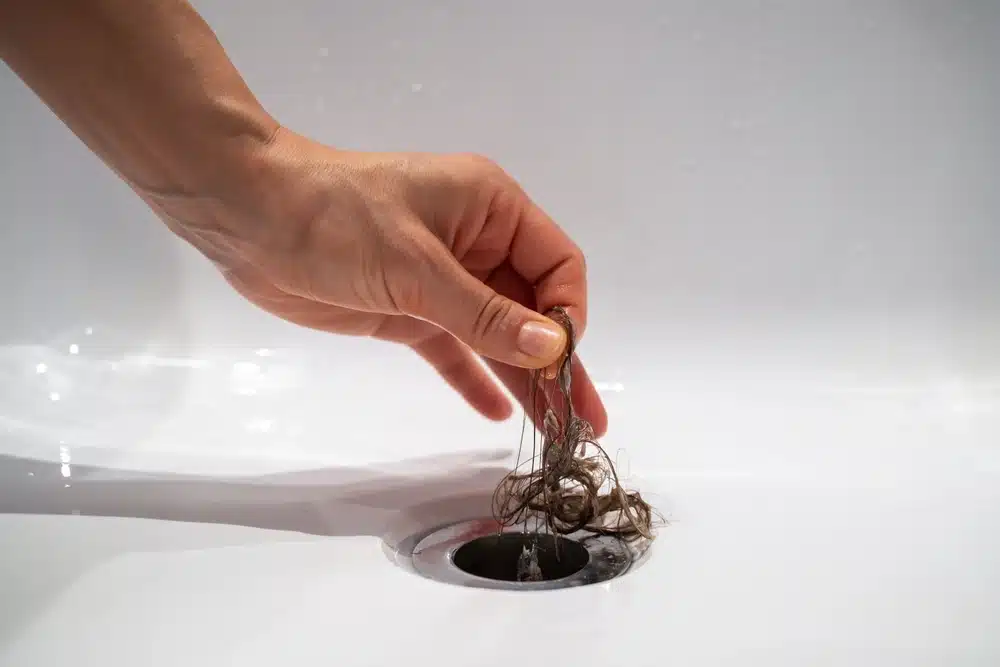Hair loss is something that will happen to most of us at some point throughout our lives, there are many different causes and factors within hair loss and the cause of your hair loss could be completely different to others.
Trying to determine what causes hair loss can be quite difficult, some of the most common causes of hair loss are; male pattern baldness, alopecia, ageing, and pregnancy. However, certain skin conditions such as eczema and psoriasis can sometimes lead to hair loss, today we’re telling you how these skin conditions can lead to hair loss.
Can eczema cause hair loss?
Seborrheic eczema which is also known as seborrheic dermatitis is a mild, chronic form of dermatitis. The skin condition can affect men, women and children of all ages. Seborrheic eczema usually appears in patches of inflamed skin which tend to be red and covered with white or yellow greasy scales. The patches most commonly occur on areas of the body that can become sweaty or greasy, such as the scalp, face, ears and chest.
It is not yet known what actually causes Seborrheic eczema, it is thought that a yeast known as malassezia plays a role. Although the yeast appears on everyone skin, the immune system of those who suffer with the condition are sensitive to it, causing stress and inflammation of the skin.
If left untreated, seborrheic eczema can lead to hair loss. This is because the follicles can find it difficult to grow in an unhealthy and inflamed environment. Those who have the condition tend to also pick and scratch the scalp which can again, lead to hair loss.
At current, there is no cure for seborrheic eczema, prevention is the best course of action and taking care of your skin can help to minimise symptoms. You should avoid picking or scratching inflamed patches on the scalp as this is what can lead to the hair thinning. If you think you have symptoms of seborrheic eczema you should visit your GP who may be able to assist you further.
Can psoriasis cause hair loss?
Psoriasis is a skin condition that commonly affects the knees, elbows, hands, feet and scalp. The skin condition is an autoimmune disorder that can cause skin cells to grow too quickly, this results in scaling and inflamed skin.
When skin cells grow they form deep within the skin and then slowly move towards the surface, they then replace dead cells and the dead skin will shed. Normally, this process takes around a month. Psoriasis speeds up this process and it only takes a few days for the new cells to form and then rise to the surface. This speed can then cause the skin to build up in patches on the surface.
When psoriasis affects the scalp you will notice red, raised and scaly patches of skin and this can lead to hair loss. Scalp psoriasis can be limited to one or two patches on the scalp or it can be widespread and even affect the forehead, back of the neck and behind the ears.
In order to prevent an outbreak of scalp psoriasis before it starts, proper treatment is crucial. A dermatologist can provide medical treatment that can clear up an outbreak.
If you are suffering with hair loss and would like more information on how the Harley Street Hair Clinic might be able to help please contact us today for a no obligation consultation.


